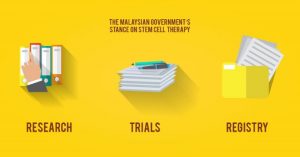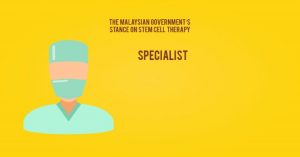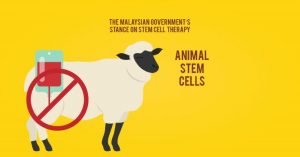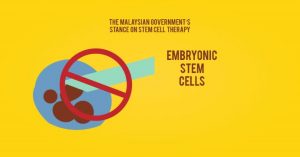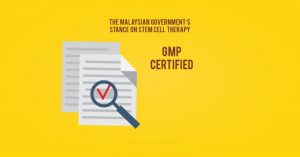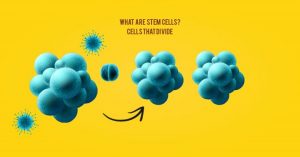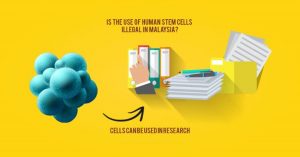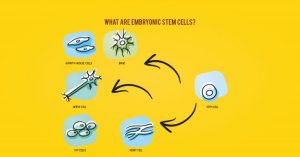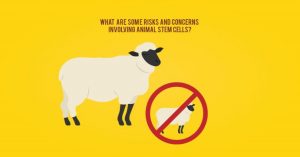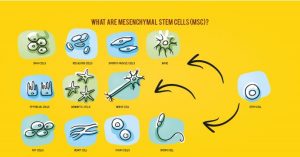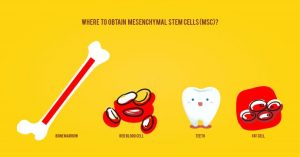There is a comprehensive list of rules and regulations when it comes to stem cells in Malaysia. Beware of stem cell treatments offered without regulatory approval or outside the confines of a legitimate and registered clinical trial.
The Malaysian Government’s Stance On Stem Cell Therapy
- The use of stem cells is allowed for the purpose of research, clinical trials, or under registry only.
- All research proposals must be submitted to National Stem Cell Research and Ethics Sub-Committee (NSCERT).
- Doctors involved must be trained in cell transplantation, which means only haematology specialists and stem cell specialists are able to perform stem cell transplant.
- The use of animal stem cells and embryonic stem cells are prohibited.
- Pregnant women may not participate in any stem cell research, clinical trials, or registry.
- Imported stem cells must be Good Manufacturing Practice (GMP) certified.
Stem Cell Q&A
- What are stem cells?
Stem cells are cells with the ability to divide or renew themselves for long periods and to give rise to specialized cells.
- Is the use of human stem cells illegal in Malaysia?
No, human stem cells can be used in research, clinical trials, or registry but the use of embryonic stem cells and animal stem cells are illegal. - What are embryonic stem cells?
Embryonic stem cells, as their name suggests, are derived from embryos. During the embryonic period, cells begin to form the brain, heart, lungs, internal organs, arms and legs. It is illegal to use embryonic stem cells in Malaysia. - What are some risks and concerns involving animal stem cells?
The usual stem cells derived from animal are fetal stem cells. In order to extract the fetal tissue, the unborn will be sacrificed. Animal stem cells might contain mutations or abnormalities and certain viruses may lie dormant in animal but become active once they enter the human body. - What are mesenchymal stem cells (MSC)?
Mesenchymal stem cells are “adult” stem cells. They are “multipotent stromal cells” that can produce more than one type of specialized cell of the body (around 17 types in total), including cartilage, bone, skin etc. Being immunoprivileged, MSC will not evoke immune reactions. They rejuvenate existing cells, reduce organ damage and increase wellbeing. - Where do you obtain mesenchymal stem cells (MSC)?
Mesenchymal stem cells can be taken from donor’s or your own bone marrow, blood, tooth, or even fat.
Beverly Stem Cell Therapy
- We use only ethically sourced MSC:
a. Harvested from the umbilical cords of new-borns with the consent of parents.
b. Harvested from donor’s or your own bone marrow, blood, tooth, or fat.
c. Imported GMP certified MSC. - We conduct legitimate stem cell researches, clinical trials and registry.
- You are able to seek professional advice from a stem cell specialist before considering any further action.
- Helpful for individuals with medical conditions such as:
a. Cardiovascular disease
b. Liver disease
c. Arthritis
d. Diabetes
e. Renal disease
f. Autoimmune conditions
联系我们
欢迎留言咨询或预约。
电话: +603 2118 2888
手提: +6018 236 2888
1800-88-8802 (Toll Free Number)
enquiry@beverlywilshiremedical.com


